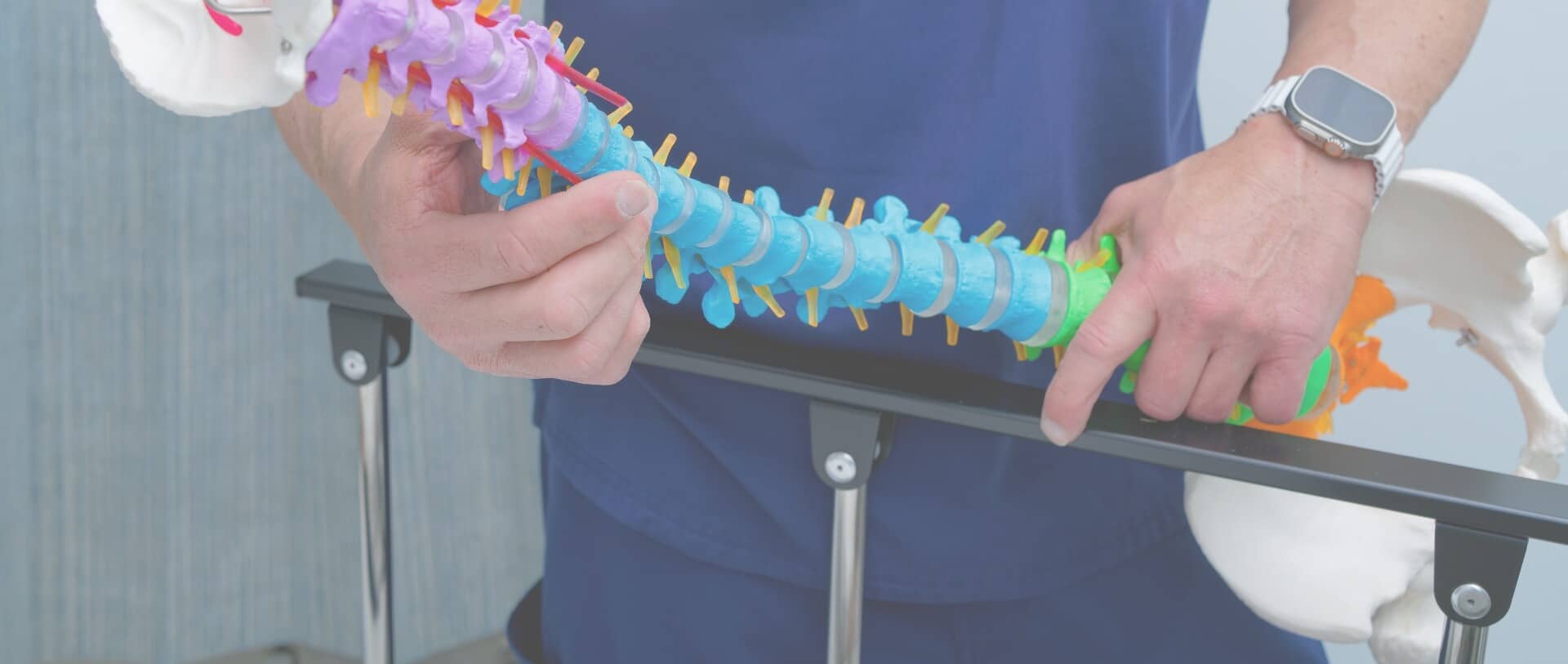
PROCEDURES
Spinal Reconstruction Surgery
When conservative treatments fail to alleviate your back pain and associated symptoms, spinal reconstruction surgery may be required as a last resort. If it becomes necessary, it is crucial to consult with experienced spinal reconstruction surgeons. At Gottlieb Spine, we have a team of specialists, led by Dr. Jamie Gottlieb, offering this procedure at our convenient location in Irving. Contact us today to determine if you are a candidate for this procedure.
What is Spinal Reconstruction Surgery?
Spinal reconstruction surgery is a transformative procedure done to correct spinal deformities or misalignments. Reconstructive surgery becomes necessary when the damage or disease affects multiple levels of the spine. Your spine consists of 3 levels, listed from top to bottom:
Spinal reconstruction involves fusing the upper and lower vertebral bones to alleviate pain, correct the damage, and help you return to optimal health. The spinal reconstruction and fusion surgery creates a single bone from multiple vertebrae, thus stabilizing the spinal column. This is achieved by removing the damaged or diseased vertebrae and replacing them with an artificial device or bone graft.
What Conditions Does Spinal Reconstruction Surgery Treat?
If diagnostic tests reveal that damage to your vertebrae is impacting your spinal column, Dr. Gottlieb may recommend spinal cord reconstruction surgery. Several conditions may contribute to this damage, including:
- Scoliosis: Characterized by an abnormal sideways curvature of the spine, spinal reconstruction can correct severe cases of scoliosis to improve spinal alignment and posture.
- Kyphosis: Also known as a “humpback,” spinal reconstruction can restore a more natural curvature in the spine.
- Spinal fractures: Spinal reconstruction can stabilize fractured vertebrae to relieve pain and promote healing.
- Degenerative disc disease: When the discs between vertebrae deteriorate, pain and spinal fusion surgery can stabilize the affected segments of the spine.
- Spondylolisthesis: If one vertebrae slips forward, over the one below it, spinal fusion can help restore proper alignment by joining the slipped vertebrae to the one below it.
Do I Need Spinal Reconstructive Surgery?
If your condition is mild enough, non-surgical reconstructive spinal care may be sufficient. This may include:
- Wearing a back brace
- Take care when lifting, twisting, and turning
- Pain medication, either over-the-counter or prescription
- Physical therapy
- Pain management
Complex spinal reconstruction is necessary, however, if your condition and symptoms have worsened. Dr. Gottlieb will be able to determine if spinal reconstruction is right for you, but you may qualify as a candidate for spinal cord reconstruction if you are suffering from these symptoms:
- Severe pain arising from spinal deformities, spinal tumors, scoliosis, degenerative disc disease
- Persisting spinal symptoms that have not responded to non-surgical reconstructive spinal care
- Progressive spinal deformity
- Restricted movement or back, leg, and buttock discomfort due to spinal cord compression
- Concurrent spinal disorders
- The presence of a spinal tumor
What is Recovery From Spinal Reconstruction Surgery Like?
After undergoing complex spinal reconstruction surgery, it is typical to stay in the hospital for three to four days. Most of your recovery will take place in your own home. Your recovery rate depends on the extent of the procedure and how well you follow the post-operative instructions provided by your spinal reconstruction surgeons. After the surgery, you can expect:
- To be encouraged to walk within one day of the procedure
- For the initial surgical pain to completely subside after the first month
- To only need prescription medication for the first week
- To follow physical therapy and exercise instructions that will help manage post-operative pain and restore full mobility
- To return to your regular schedule and activities within three months
- To make a full recovery within six months

Top Quality Care at Gottlieb Spine
At Gottlieb Spine, we understand the significant impact that spinal conditions can have on your quality of life. Our team of experienced spinal reconstruction surgeons, led by Dr. Jamie Gottlieb, is dedicated to providing the highest level of care and expertise. If you’re facing the prospect of spinal reconstruction surgery, we’re here to guide you through the process, from diagnosis to recovery. Contact us today to schedule a consultation at one of our convenient Texas locations and take the first step towards optimal health.
SCHEDULE A CONSULTATION